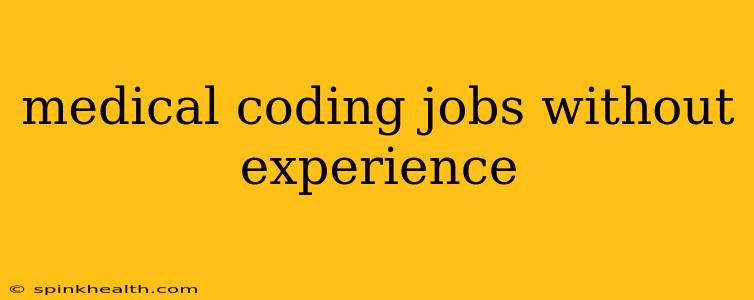Cracking the Code: Landing Your First Medical Coding Job
The world of medical coding might seem intimidating, a realm of complex codes and intricate regulations. But for those with a keen eye for detail, a knack for problem-solving, and a passion for healthcare, it offers a rewarding career path – even without prior experience. My journey into medical coding began with a similar lack of experience, and I'm here to share the secrets I uncovered along the way. This isn't just about getting a job; it's about building a career you'll love.
Let's unravel the mystery together, addressing some common questions along the way.
What are the entry-level positions in medical coding?
Many aspiring coders believe that entry-level positions are non-existent. That's a myth! While you might not immediately land a role as a full-fledged coder, several entry-level opportunities serve as excellent springboards:
- Medical Biller/Coder Trainee: These roles usually involve a combination of billing and coding tasks, allowing you to gain practical experience under supervision. You'll learn the ropes while contributing to the team.
- Medical Records Clerk: This role provides valuable exposure to medical terminology, documentation, and the overall workflow of a healthcare facility. It's a great way to build familiarity with the environment before diving into coding.
- Data Entry Clerk (Healthcare Focus): While not strictly coding, these positions improve your speed and accuracy with data entry, a crucial skill for medical coding. This experience translates directly into your future coding role.
- Internship or Apprenticeship: Look for internships or apprenticeships specifically designed for aspiring medical coders. These programs offer hands-on training and often lead to full-time employment.
How can I get a medical coding job with no experience?
The truth is, experience is valuable, but it's not insurmountable. The key is to showcase your potential and eagerness to learn. Here's how:
- Certification is Key: Obtaining a recognized medical coding certification (like the CPC or CCA) significantly boosts your credibility. These certifications demonstrate your commitment to the field and your understanding of fundamental coding principles. Recruiters value these credentials highly.
- Highlight Transferable Skills: Do you have experience in data entry, customer service, or administrative tasks? These skills are directly transferable to a medical coding role. Emphasize them in your resume and cover letter.
- Network, Network, Network: Attend industry events, join online forums, and connect with medical coders on LinkedIn. Networking expands your reach and exposes you to potential opportunities.
- Tailor Your Resume and Cover Letter: Don't just send generic applications. Customize each resume and cover letter to the specific job description, highlighting the skills and experience that best match the requirements. Show them you've done your homework.
- Volunteer or Shadow: Offering your services as a volunteer at a healthcare facility can give you practical experience and valuable networking opportunities. Shadowing experienced coders allows you to see firsthand what the job entails.
What skills are important for a medical coding job?
While experience is valuable, certain skills are essential for success:
- Medical Terminology: A solid understanding of medical terminology is paramount. Invest time in learning and mastering it.
- Anatomy and Physiology: Basic knowledge of human anatomy and physiology will help you understand the medical procedures and diagnoses you'll be coding.
- ICD-10 and CPT Coding Systems: Proficiency in these coding systems is crucial for accurate coding.
- Attention to Detail: Accuracy is paramount in medical coding. Even a small mistake can have significant consequences.
- Problem-Solving Skills: You'll encounter complex medical records that require careful analysis and interpretation.
- Computer Skills: You'll be using computer software regularly, so strong computer skills are essential.
What is the average salary for an entry-level medical coder?
Entry-level salaries vary depending on location, employer, and certifications. Research average salaries in your area to get a realistic expectation. While the initial salary might not be as high as experienced coders, remember that your earning potential will grow significantly with experience and additional certifications.
Is a medical coding degree necessary to become a coder?
While a degree can be beneficial, it's not always required for entry-level positions. Many coders successfully enter the field with a certificate and strong practical skills. The key is to demonstrate your competency and knowledge through certifications and relevant experience.
My journey wasn't easy, but the rewards have been immense. By focusing on acquiring the necessary skills, building a strong network, and presenting myself professionally, I landed my first medical coding job. Remember, even without prior experience, you can crack the code to a successful career in medical coding. It's a journey of learning, growth, and making a real difference in healthcare. So, take that first step, and watch your career blossom.

